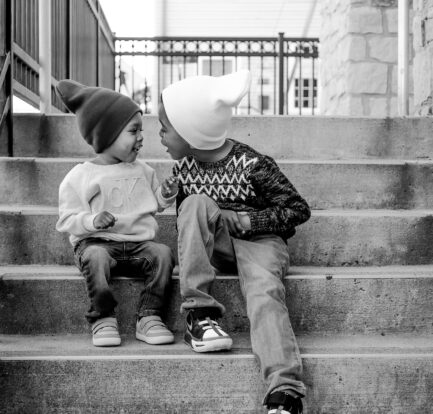For parents, providing your children with equal opportunities is a common goal. But when it comes to language development, is it really possible to provide the same input to each child? And, more importantly, does differing input cause differing language abilities between siblings? Blake proposes that the more children there are in a family, the […]
Browsing Tag: language learning
Focus on the positive: kids don’t really learn about what *isn’t possible* when learning language
Have you ever tried to “correct” a toddler’s grammar? It probably went in one ear and out the other. There’s a very famous example from a linguistics researcher: Child: Want other one spoon, Daddy. Father: You mean, you want the other spoon. Child: Yes, I want other one spoon, please Daddy. Father: Can you say […]
iPad babies: should we worry about technology’s impact on language learning?
Currently, it is estimated that over 65% of the world (or 5 billion people) have access to the internet (Shewale, 2024). In such a connected world, it may seem overwhelming for parents to figure out how they want their child to spend their time, and how to support their learning. With new apps, videos, and […]
We can learn to sing, but can we sing to learn?
Why are the ABCs sung? Sure, it makes the alphabet more fun for kids to learn. But does it also make it easier for them to learn? Short answer: yes! It’s the reason why many languages have songs for their own alphabets–and the reason why I can still rattle off the capitals of most of […]
What Does It Mean to Be Fluent in a Language?
I’ve been learning Spanish since I was eight years old–I can read, write, and speak it very well, but I have never once said that I am “fluent”. I don’t even know what that really means! The word fluency comes from the Latin word fluentem, which means “to flow”. The dictionary definition of fluency states […]
On the Tip of Their Tongue: Babies Use Tongue Movement to Learn Language
Have you ever wondered how infants go from communicating via crying, to nonsensical noises, to single syllables, and eventually to words? Well, it turns out infants’ language learning is linked to being able to move their tongue when hearing the sounds: tongue movement isn’t just necessary for *making* speech sounds– it also helps babies *understand* […]
Can Babies Learn Language Before They are Born?
Have you ever heard of parents putting headphones on their bellies during pregnancy so their baby can listen to music before they’re born? That’s because babies usually start being able to hear during the third trimester. We also know that babies start to develop language at a very young age, and as more research is […]
Tuning in and out: language learning and processing with a noisy background
It feels like there are always so many things happening at once. This is especially true when it comes to noise. Even when sitting at your desk, there may be an air conditioner blowing, water dripping in a bathroom nearby, your colleague talking to you, and a background conversation. So, how exactly does our brain […]
Before babies can learn what a word means, they have to know what it sounds like.
What is wordform recognition? Before they can even consider learning what words mean, infants need to be able to recognize the consistent way that words sound, even though the same word can sound super different each time it’s said! Take a listen to this audio recording of all the times a baby heard other people […]
How do we process language as we see or hear it? You can predict the future (a little bit)!
Language Processing Models: Top-Down Versus Bottom-Up Bottom-up pathways rely on data as it comes in. These models process information by building up a larger meaning step-by-step from basic units, kind of like climbing up a staircase. For example, if you used a bottom-up method while reading, your eyes would transmit each individual letter to your […]


